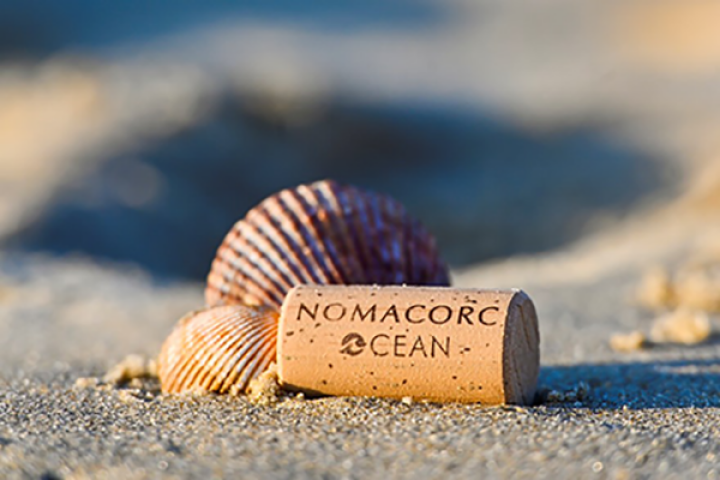Nomacorc Ocean Cork: Protecting wine and the ocean

Created in 1999 by Belgian entrepreneur Marc Noël, the American company Vinventions has always pioneered the use of alternative raw materials. The company originally developed and marketed a wine closure made from co-extruded polythene. This synthetic stopper offered a solution to the “cork taste” that spoilt many bottles of wine, thus reducing the number of bottles wasted due to cork taint. In turn, this prevented many bottles, labels, caps and wine from going to waste.
Sustainable innovation
In 2013, the company was the first to launch the Nomacorc Green Line, a range of corks made from renewable materials derived from sugar cane. Always striving for innovation and sustainability, they launched Nomacorc Blue Line — a range of corks made from circular polymers obtained from their partners, SABIC — a few years later.
Launched in early 2023, the newest addition to the family is Nomacorc Ocean. It’s “the first closure for still wines made from a raw material derived from ocean waste,” says the leading manufacturer of synthetic closure solutions.
According to the definition provided by the non-governmental organisation Zero Plastic Oceans, ocean-bound plastic (OBP) is discarded plastic waste of any size located in coastal areas up to 50 km inland where collection systems are non-existent or failing.
An effective measure against pollution
“The raw material used comes from coastal areas in Asia, where marine pollution emissions are considered to be the highest,” adds Romain Thomas, Nomacorc product manager at Vinventions. Ocean Bound Plastic waste is recovered by a Zero Plastic Ocean certified company “under ethical and profitable conditions for the local communities”, he adds.
The recycled OBP used in Nomacorc Ocean is obtained using chemical recycling, which returns plastics to a monomer state. The recycled raw material therefore has exactly the same properties as the virgin raw material. Consequently, it’s of food-grade quality, and the final products will give an identical performance.
For the launch of the new closure, Vinventions has chosen the Damarino white wine from the Sicilian winery Donnafugata, and the Bouey winery, located in the Médoc region of France. By using this closure, Donnafugata will help recycle 1.15 tonnes of waste.
Technological innovation and sustainable development are at the core of the strategy
For over 10 years, Vinventions has been setting up its own collection, sorting and recycling programmes across the globe. In France, this represents 19 million corks collected each year, i.e., nearly 80 tonnes of corks recovered and transformed into household consumer products.
The company also invests in plastic waste collection programmes, which has led to it received the “Net Zero Plastic to Nature” certification in 2022.
In pursuing its sustainable innovation strategy, the company has set itself the target of making 100% of its closure solutions renewable, biodegradable or circular by 2030.
More information:
https://www.vinventions.com/



